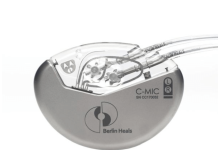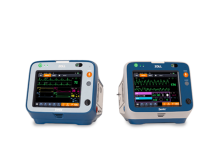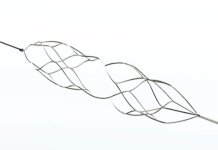Broncus Medical (02216HK), Inc., developer of diagnostic and therapeutic technology for a variety of lung diseases, announced online publication in the Respirology journal of a global, multicenter study demonstrating the effectiveness of the company’s Archimedes® Virtual Bronchoscopic Navigation (VBN) System in guiding the sampling of peripheral pulmonary lesions.
“Seeing these results in a global multicenter study in a real world setting is very encouraging as we look to advance the care we can provide every day to lung cancer patients.”
The prospective, single-arm, multicenter study of 104 patients studied biopsy yield (biopsy forceps and/or needle), sampling yield (including cytologic sampling) and diagnostic yield using the Archimedes System to guide bronchoscopic transparenchymal nodule access (BTPNA) and guided transbronchial needle aspiration (TBNA). The global study took place at:
- U.S. – Beth Israel Deaconess Medical Center, Cancer Treatment Centers of America at Southwestern Regional Medical Center, Duke University, Houston Methodist Hospital, Temple University Hospital, University of Pennsylvania
- China – The First Affiliated Hospital of Guangzhou Medical University, Shanghai Chest Hospital
- Germany – ThoraxKlinik
- Hong Kong – Hong Kong Sanatorium and Hospital
The study’s authors concluded that, “BTPNA and TBNA contribute to safe and effective sampling of peripheral pulmonary lesions. A relatively high biopsy yield was obtained independent of the presence or absence of a bronchus sign, and high sampling yield and diagnostic yield were obtained independent of location, lesion size and presence or absence of a broncus sign.”
The Archimedes VBN System combines fused fluoroscopy, real-time bronchoscopy and virtual bronchoscopic navigation for 3D views and access to nodules anywhere in the lung, with the ability to avoid major blood vessels through vessel mapping. Archimedes uniquely enables BTPNA, a sampling method that enables a surgeon to precisely and quickly access a lesion via tunneling when the lesion is not adjacent to an airway.
The study showed that BTPNA enabled a sampling yield of 90.2 percent and a biopsy yield of 86.3 percent, while the sampling yield across both BTPNA and guided TBNA was 93.9 percent. This was achieved with a low pneumothorax rate of only 1.9 percent. The diagnostic yield from more than one-year follow-up across both procedures was 75.4 percent and 72.8 percent, respectively, on the high and low estimate. Sufficient histologic and/or cytologic samples were obtained in 107 of 124 lesions, resulting in a technical success rate of 86.3 percent.
“Despite new technologies to improve bronchoscopic diagnosis, their results are limited by their reliance on the presence of an airway leading to the lesion. The BTPNA approach using virtual bronchoscopic navigation is exciting as it is demonstrating the ability to achieve a very high biopsy yield no matter where the lesion is located, while avoiding blood vessels and minimizing the risk of pneumothorax,” said Gerard Criner, MD, Chair and Professor, Thoracic Medicine and Surgery, Lewis Katz School of Medicine at Temple University and Director, Temple Lung Center. “Seeing these results in a global multicenter study in a real world setting is very encouraging as we look to advance the care we can provide every day to lung cancer patients.”
“In this study, BTPNA showed a superior biopsy yield when compared to bronchoscopic diagnostic approaches. While BTPNA is an emerging approach, its capabilities will become even more valuable with the advent of new therapeutics in the near future, when both diagnosis and treatment will be able to be accomplished bronchoscopically, no matter where the lesion is located in the lung,” said Brandon Markle, Senior Director of Global Sales and Marketing, Broncus Medical.
About Broncus Medical, Inc.
Broncus Medical, Inc. is dedicated to the development of diagnostic and therapeutic technology for a variety of lung diseases. Founded in 2012, the company’s primary technology platforms focus on the diagnosis of lung cancer and the treatment of emphysema. Its lung cancer diagnostic and therapeutic portfolio includes the Archimedes® System, Archimedes® Lite™ Virtual Bronchoscopic Navigation (VBN) System, Archimedes® Planner and FleXNeedle®.




